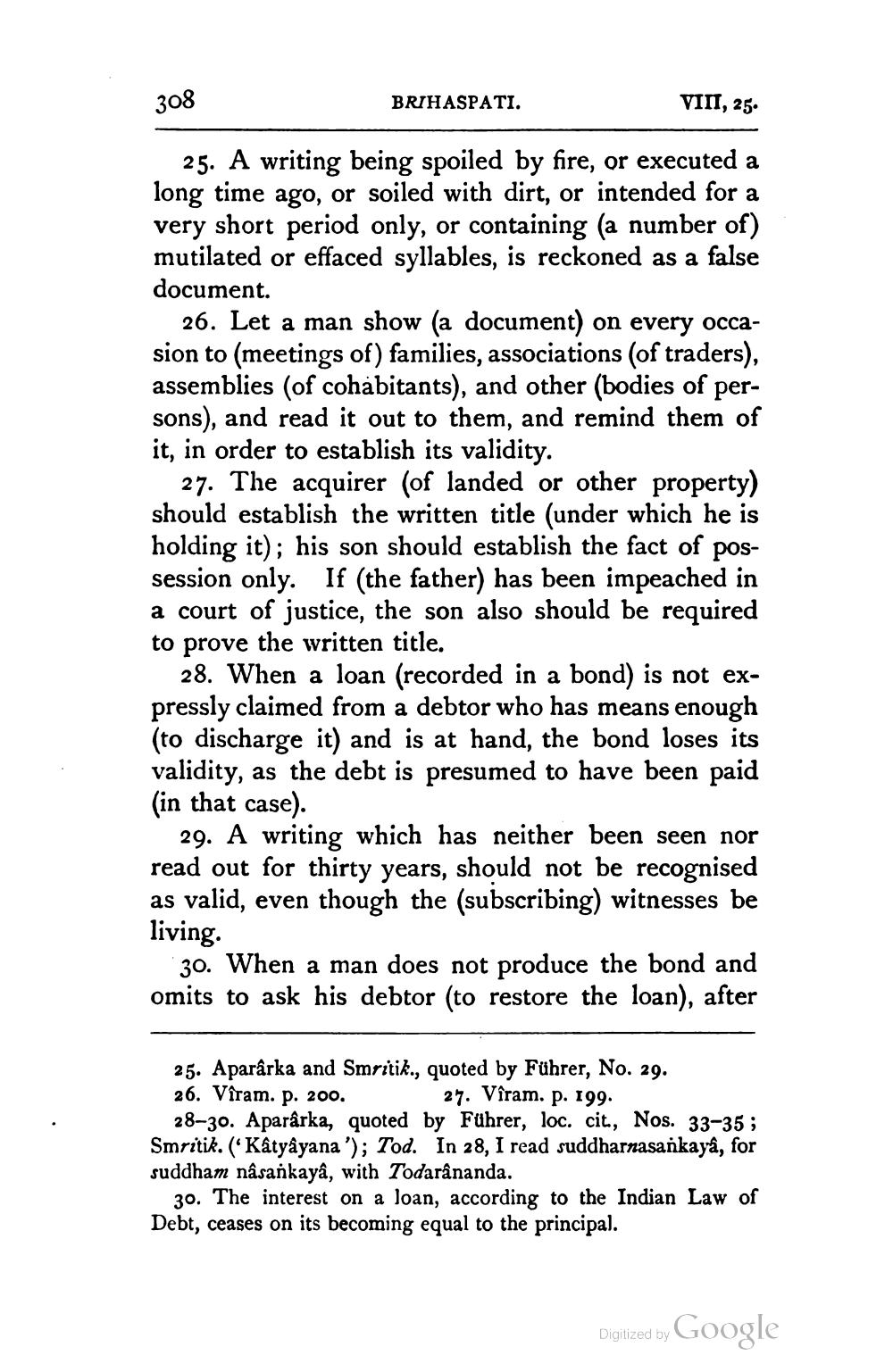________________
308
BRIHASPATI.
VIII, 25.
25. A writing being spoiled by fire, or executed a long time ago, or soiled with dirt, or intended for a very short period only, or containing (a number of) mutilated or effaced syllables, is reckoned as a false document.
26. Let a man show (a document) on every occasion to (meetings of) families, associations (of traders), assemblies (of cohabitants), and other (bodies of persons), and read it out to them, and remind them of it, in order to establish its validity.
27. The acquirer (of landed or other property) should establish the written title (under which he is holding it); his son should establish the fact of possession only. If the father) has been impeached in a court of justice, the son also should be required to prove the written title.
28. When a loan (recorded in a bond) is not expressly claimed from a debtor who has means enough (to discharge it) and is at hand, the bond loses its validity, as the debt is presumed to have been paid (in that case).
29. A writing which has neither been seen nor read out for thirty years, should not be recognised as valid, even though the (subscribing) witnesses be living.
30. When a man does not produce the bond and omits to ask his debtor (to restore the loan), after
25. Aparârka and Smritik., quoted by Führer, No. 29. 26. Vîram. p. 200.
27. Vîram. p. 199. 28–30. Aparârka, quoted by Führer, loc. cit, Nos. 33–35; Smritik. (Katyayana'); Tod. In 28, I read suddharnasankayâ, for suddham nâsankaya, with Todarânanda.
30. The interest on a loan, according to the Indian Law of Debt, ceases on its becoming equal to the principal.
Digitized by Google




